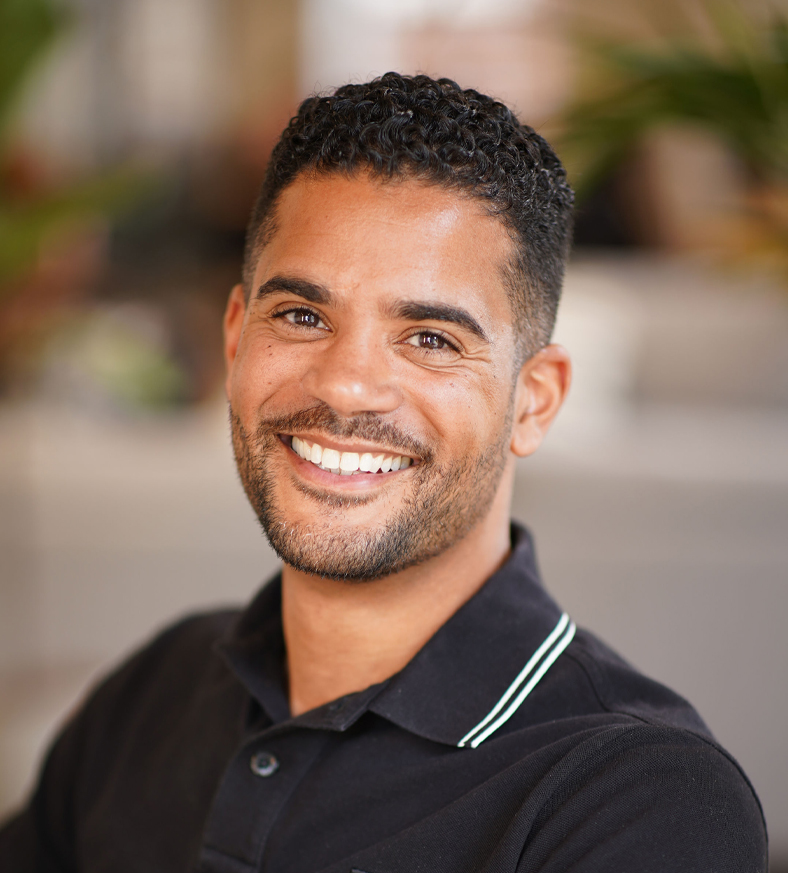Behind every impactful role we place, every team we build and every effort we make to create systemic change for our planet and society by activating people’s potential; lies our team of passionate, sustainability-minded individuals. Our ongoing ‘Faces of Acre’ series helps us take a step back from the day-to-day to shine a spotlight on the people who make us who we are, giving them a platform to share their passions, speak up about important topics and talk about the pro bono initiatives they take part in.
This instalment relates to the inspirational work that has been conducted by Ricardo Pengel, Principal Recruitment Consultant, Consumer Goods & Manufacturing, EMEA, at Moving Mountains where he is an ambassador.
The Moving Mountains foundation was set up three years ago with a mission to support women and children in third world countries, to enhance their future, to provide education and encourage self-sufficiency.
This is the story of a group of ambitious friends in the Netherlands who collaborated to make an impact in an area of the world that needs it most. It serves as a reminder of the privilege many of us have in terms of education, resources, security and support and how the ‘moving mountains’ approach, to help others, can pay off in many ways.
Tell us the story behind Moving Mountains?
One of my childhood friends, John Benning, lost his mother to cancer and went on a soul-searching trip to climb Mount Kilimanjaro in Tanzania in a bid to be ‘closer’ to his mother. John was joined by a group of friends and documented the trip.
This challenging experience resulted in a whole new adventure which changed John’s future. After making it to the top of the mountain and as they walked back down, they reached a village where they met an Austrian woman Dr Cornelia Wallner-Frisee who runs an NGO there called Africa Amini Alama, which improves people’s lives and futures. She had a school and taught women basic skills such as sewing. They had uneducated children, and the founder needed more capacity to make a further impact, so John decided to support.
He had so much footage of the trip which was significant on a personal level, he and his friend made a documentary, renting out a cinema in John’s town in the Netherlands for people to watch it.
How did you become involved in the foundation?
I watched the documentary and was so inspired by the trip, what John had been through and how it gave him a new purpose in life.
John announced he wanted to set up a similar charity and approached me for support.
My corporate background meant I could offer support in different areas, from networking to public engagement. We came up with a couple of ideas, eventually launching the Moving Mountains foundation in early 2022.
The whole process was very important to me – I was so inspired and wanted to make a direct impact.
John and I started meeting up regularly around our regular full-time jobs, with around five other people, and during this time the concept came to life.
We networked and collaborated with partners, including Dr Wallner-Frisee at Africa Amini Alama, and one of the projects we’ve completed together is the construction of a secondary school in Tanzania for Maasai women and their children.
What are the issues faced by the Maasai community?
Lack of education is a key challenge – some families have four children but only one can go to school (usually the boy) – so, we wanted to give an equal opportunity to the girls.
Social challenges include issues where some men are spending the family income, which results in the women and children being underprivileged. Alcohol abuse among men affects families, so it’s a vicious cycle which the women and children struggle to break.
Women are vital to the community because they hold the family together so these initiatives really help them take the lead.
It is important we not only raise community awareness, but also help directly by giving them the opportunity to go to school; children walk an hour to school and we don’t appreciate the difficulties.
What impact have you made?
We have been building a secondary school from scratch in Tanzania for women and children and we’ve realised that a big part of the project is also really helping them significantly.
The school project, in the village at the bottom of the mountain, is almost completed. The first phase of the project has been completed successfully but the second phase is to build an additional school building.
More people wanted to get involved because we shared a common goal. New people bring fresh energy and have their reasons for joining, along with their own network, so it’s a ripple effect.
The common goal is the desire to make an impact, build that school and create new projects along the way.
Women are learning how to sew so they can sell items on the market which is very empowering for them.
Acre gave me time and space to carry out this pro bono work, as well as supporting the foundation by watching the documentary. I have made a recent decision to step back from my duties now that the foundation is more established but will stay on as an ambassador to help directly whenever the support is required.
It’s a good feeling to be able to give something back and that’s what I’ve really learned from this whole experience.



